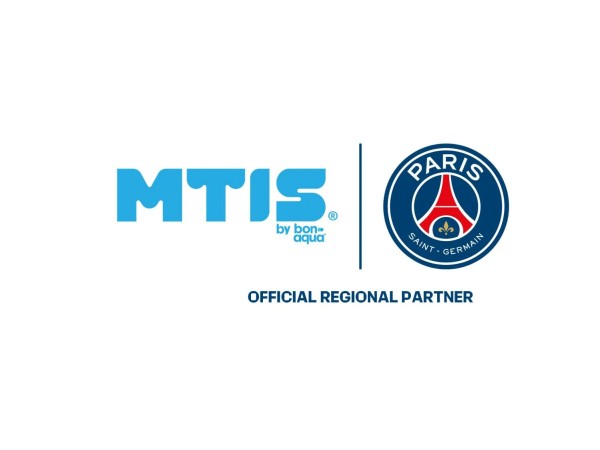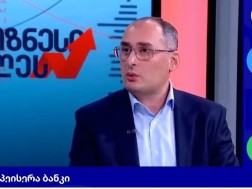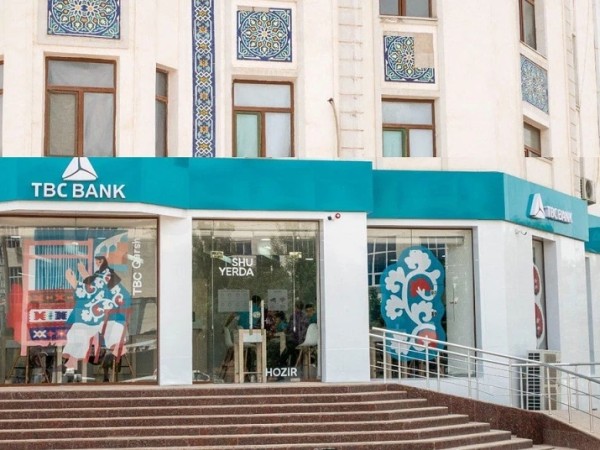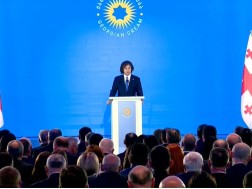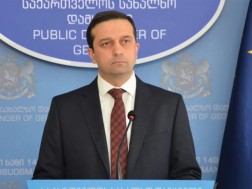Tbilisi (GBC) - The improvement of the tax legislation, which regulates the activities of companies with the status of Virtual Zone Person (VZP), remains open today. The VZP Association initiated the legislative changes, which were presented in detail to the relevant committee of Parliament and high-ranking representatives of the Ministry of Finance for consideration. According to the Association, the representatives of the relevant authorities approved the changes they initiated and recognized the need to clarify the legislation.
Despite this, companies with VZP status continue to face difficulties in removing fines due to ambiguous legislation. Companies that entered the Georgian market with the lure of tax benefits established for this status in 2010 have faced fines in recent years, owing to the legislation's ambiguity and lack of sophistication, which allows Revenue Service representatives to interpret. Businesses find it difficult to operate consistently in the face of such flawed legislation.
According to an opinion of interested parties, the Ministry of Finance may want to take into consideration combining the regimes of Virtual Zone Person and International company under one status in addition to the requirement of improving the law.
Because there is a lot of overlap in the legislation on both statuses, this initiative may appear quite comprehensive at first glance. In particular, in Appendix #2 of the Government of Georgia's Resolution #619 of October 8, 2020, on Determining the status of an international company, and approving the list of permitted activities and certain expenses, the list of types of activities, including points A-O, in the first article contains digital and computer directions, which are identical to the fields of activity of companies with the status of a Virtual Zone Person. However, before making a final decision, it is necessary to conduct a deeper analysis and, most importantly, the collaborative work of state, private sector, and industry specialists, so that the growing direction is not harmed and past mistakes are not repeated.
Tax and other benefits
The issue of tax benefits is different for companies with these two statuses. In the case of International companies, the company has the right to reduce the distributed profit amount taxable by profit tax Annex #3 of the aforementioned decree states that benefits apply to the following expenses:
1. Salary expenses paid by a person with the status of international company to a hired citizen of Georgia.
2. Expenses of scientific-research, design and experimental-construction services in the field of activity (ies) permitted for an international company.
For the status of a Virtual Zone Person, we read in the "Law of Georgia on Information Technology Zones":
1. Issues concerning the taxation of a Virtual Zone Person are governed by the Tax Code of Georgia.
2. The following shall not be levied:
a) tax on the profits earned from supplying outside Georgia the information technologies created by virtual zone persons;
b) tax on the supply with VAT outside Georgia of information technologies (ITs) created by virtual zone persons.
c) export duties on exporting from the customs territory of Georgia of the information technologies produced by virtual zone persons.
3. The expenses, related to earning income from supplying within or outside of the territory of Georgia of the ITs produced by a virtual zone person, shall be deducted from the gross income in proportion to the share of the income earned from supplying the ITs within the territory of Georgia.
This law also provides the Virtual Zone Person with the following regulatory benefits:
1. Virtual zone persons shall be exempt from any special regulations.
2. Virtual zone persons do not need licenses, permits and other regulatory documents to conduct their activities.
What happens when statuses merge?
In addition to the overlap and similarities, there are significant differences between these two statuses. For example, international status necessitates at least two years of experience to qualify for a tax credit, denying startups the opportunity to begin operations while benefiting from the credit. VZP does not require two-year experience, which has encouraged novice programmers, including those working and interested in this field, to begin working in Georgia, use this status, and choose Georgia as a location for their business activities.
The main challenge in the Association of Georgian Virtual Zone Persons is still the clarification of tax legislation, without which only the adoption of a new law or merger will not solve the problems of the companies with the status of VZP, and the risks of fines will remain high.
In the Ministry of Finance, the chairman of the VZP Association, Shorena Kopaleishvili, was promised that the agency would definitely be in communication with them and that any decision would be made taking into account mutual interest.
Statistics of Virtual Zone Persons and companies with international status
According to the data of the LEPL Financial and Analytical Service, in accordance with the Law of Georgia "On Information Technology Zones" and Resolution of the Government of Georgia No. 49 of January 26, 2011 "Regarding rules and conditions for receiving virtual zone person status and definition of virtual zone person status " as of January 1, 2011–August 4, 2023:
● The status of Virtual Zone Person was granted to 1204 (one thousand two hundred and four) legal entities;
● The process of granting the status of Virtual Zone Person was suspended for 317 (three hundred and seventeen) legal entities;
● The status of Virtual Zone Person was refused to 4 (four) legal entities;
● The status of Virtual Zone Person was canceled for 59 (fifty-nine) legal entities;
● Regarding granting the status of Virtual Zone Person, the case is being reviewed in connection with 7 (seven) legal entities.
According to the data of the Service Department of the Revenue Service from October 1, 2020 to August 4, 2023:
● The active status of the international company was granted to 105 taxpayers;
● A negative response to international company status was received by 46 taxpayers;
● International company status was canceled for 6 taxpayers;
● In connection with granting the status of an international company, the cases of 11 status-seeking taxpayers are being reviewed.
By comparing the data presented, we can unequivocally state that interest in the status of the Virtual Zone Person is currently much higher and growing. It will be interesting to compare the taxes paid by companies with both statuses to the Georgian budget. We will undoubtedly be interested in this information, request it, and share it with all interested parties, which will assist in drawing the correct conclusions from the obtained results.




